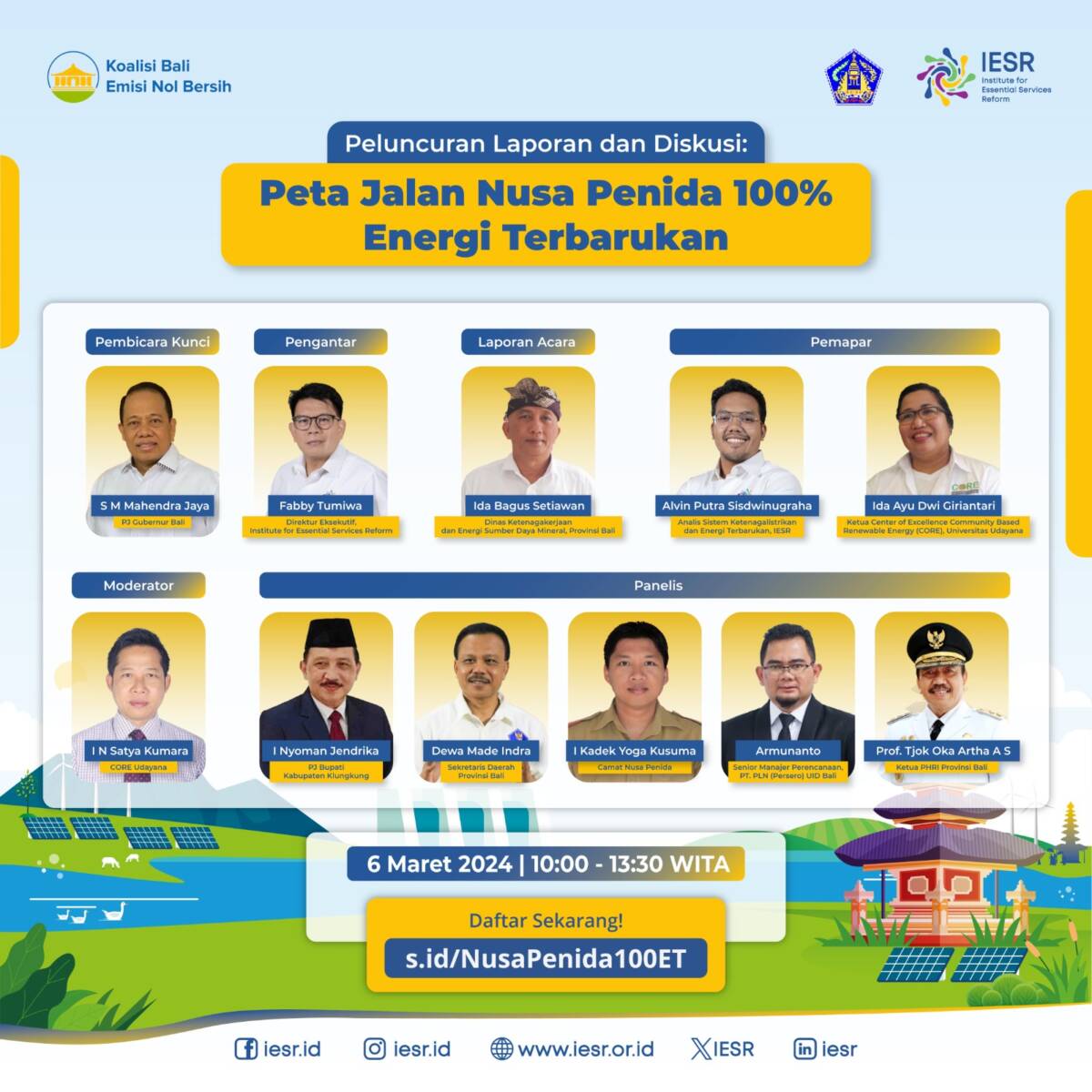
Report Launch Nusa Penida 100% Renewable Energy
Replay Event
Background
The Bali Provincial Government set a vision for 2023,2023,Bali Net Zero Emissions by 2045 in August 2023 supported by non-governmental organization partners. This vision covers the electricity, transportation, and climate entrepreneurship development sectors. This ambitious target can be achieved by the Bali Provincial Government through an effective and collaborative strategy and a targeted and accountable roadmap. To ensure the achievement of these targets, the roadmap to Bali NZE was developed to formulate policies that support the growth of an optimal renewable energy development ecosystem and prepare a green workforce that will drive the transition.
According to Kemenko Marves, Nusa Penida Island, located in the south of Bali, holds five national titles, namely as a National Tourism Strategic Area (KSPN), one of the Outermost Islands, an Aquatic Conservation Area, a Bali Cattle Breeding Center, and a Renewable Energy Development Tourism Area. Nusa Penida’s strategic role can be encouraged as a pilot project to supply electricity powered by renewable energy to supply all electricity needs independently on one island. The existence of the senseinpilot project and the strategic predicate of Nusa Penida is expected to change the paradigm of renewable energy-based energy provision at a broader sense.
To support this initiative, IESR, in collaboration with partners, analyzed the potential of renewable energy (RE) in Nusa Penida that can be developed. Based on the results of the analysis, the potential for RE in Nusa Penida includes rooftop solar power plants worth more than 10.9 MWp, biodiesel power plants (castor plants and seaweed) of more than 2 MW, small-scale wind power plants, and Pump Hydro Energy Storage (PHES) capable of reaching more than 120 MW. Apart from renewable energy, the energy potential in Nusa Penida can also utilize wastewaste (Waste to Energy/WtE) at 700 kW.
After knowing the renewable energy potential of Nusa Penida, IESR also analyzed Nusa Penida’s electricity system in more depth to determine the optimal configuration of generation, transmission, and distribution systems to supply regional energy needs, including the capacity of potential renewable energy power plants, proposed locations, and network adjustment needs. The results of this analysis and study can be encouraged and are expected to become a blueprint for renewable energy-based island development and become part of the Bali NZE 2045 roadmap.
Objective
This event was organized with the aim of disseminating the results of the Nusa Penida 100% study.
Presentation
Potential Mapping for 100% Renewable Energy Nusa Penida
Pemetaan-Potensi-untuk-Nusa-Penida-100-Energi-TerbarukanSpeaker
-
Fabby Tumiwa - Chief Executive Officer (CEO) - IESR

